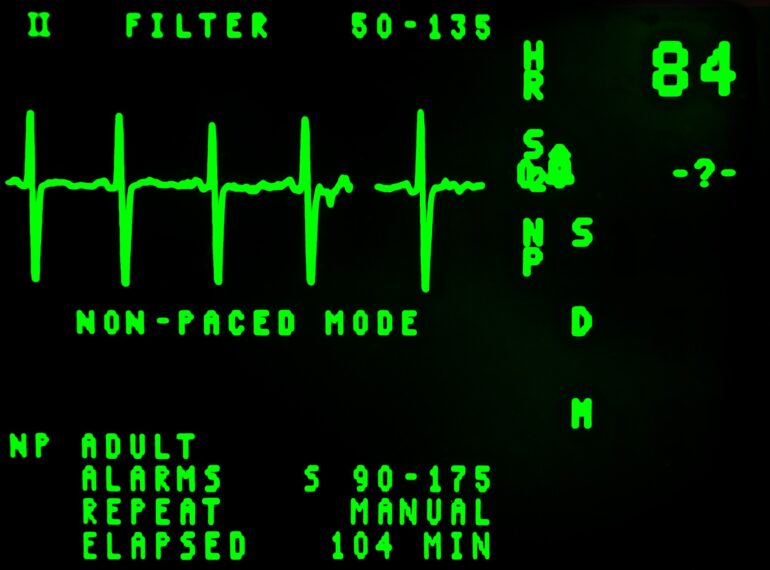TL;DR:
- Researchers have developed an AI model that accurately evaluates ECG results for heart attack assessments.
- The AI model surpasses other modern techniques, providing faster and more accurate risk assessment.
- The model outperforms experienced physicians, commercial ECG algorithms, and the HEART score for cardiac events.
- It accurately reclassifies one in three chest pain patients into low, intermediate, or high-risk categories.
- AI technology can guide emergency medical services (EMS) decisions and improve prehospital triage.
- Further optimization and integration into hospital command centers are underway.
Main AI News:
Cutting-edge artificial intelligence (AI) technology has shattered expectations in the medical field by providing highly accurate assessments of heart attacks. A recent study published in Nature Medicine has unveiled a groundbreaking AI model that surpasses other modern techniques in evaluating electrocardiogram (ECG) results and identifying signs of occlusion myocardial infarction. This remarkable achievement has left researchers astounded, as the model’s performance far exceeds their wildest dreams.
Lead author Salah Al-Zaiti, PhD, RN, an associate professor of emergency medicine and cardiology at the University of Pittsburgh, emphasized the significance of this breakthrough. “When a patient arrives at the hospital with chest pain, determining whether it is a heart attack or not is the crucial first step. However, the process is often time-consuming, taking up to 24 hours to complete additional tests when the ECG results are inconclusive,” explained Al-Zaiti. “Our AI model addresses this critical challenge by enhancing risk assessment, enabling patients to receive appropriate care without delay.”
Al-Zaiti and his team meticulously trained their algorithm using ECG data from over 4,000 patients who presented with chest pain at three prestigious Pittsburgh hospitals. The model’s accuracy was then validated using data from nearly 3,300 patients seen at a different healthcare system. The AI model was pitted against three established “gold standards” for heart patient evaluation: interpretations from experienced physicians, commercial ECG algorithms, and the HEART score for major cardiac events. Remarkably, the algorithm outperformed all three alternatives when combined with the clinical judgement of trained emergency personnel, accurately reclassifying one in three chest pain patients into low, intermediate, or high-risk categories.
“We had hoped to achieve a level of accuracy similar to the HEART score, but to our surprise, our machine learning model, based solely on ECG data, exceeded this benchmark,” expressed Al-Zaiti, highlighting the exceptional capabilities of their AI model.
The implications of this breakthrough extend far beyond the confines of the hospital. Co-author Christian Martin-Gill, MD, MPH, chief of the EMS division at the University of Pittsburgh, emphasized how this newfound technology can revolutionize emergency medical services (EMS). “This information can guide EMS medical decisions, such as initiating specific treatments in the field or alerting hospitals about incoming high-risk patients,” said Martin-Gill. “On the other hand, it is equally exciting that the model can identify low-risk patients who do not require transfer to a specialized cardiac facility, thereby improving prehospital triage.“
Looking ahead, the researchers intend to delve deeper into the AI model, optimizing its deployment, and even integrating it into hospital command centers. Their ultimate objective is for the model to assess ECG data collected by EMS specialists in real-time, providing invaluable insights to guide treatment decisions, including the early activation of the cath lab.
Conclusion:
The groundbreaking AI model for heart attack assessments represents a major milestone in the healthcare market. Its superior performance in accurately evaluating ECG results has the potential to revolutionize emergency cardiac care. By providing faster and more accurate risk assessment, this technology can significantly improve patient outcomes and streamline treatment decisions. The integration of AI into healthcare systems, particularly in emergency medicine, opens doors for enhanced efficiency and better resource allocation. As this AI model continues to evolve and optimize, its widespread adoption could lead to significant advancements in cardiac care and ultimately save countless lives. The market for AI-driven healthcare solutions is poised for exponential growth, with immense opportunities for AI developers, medical institutions, and technology companies to collaborate and bring these transformative innovations to the forefront of patient care.

